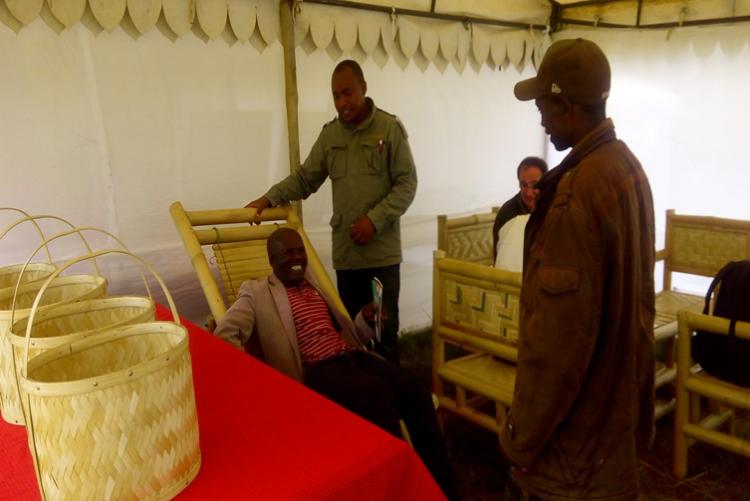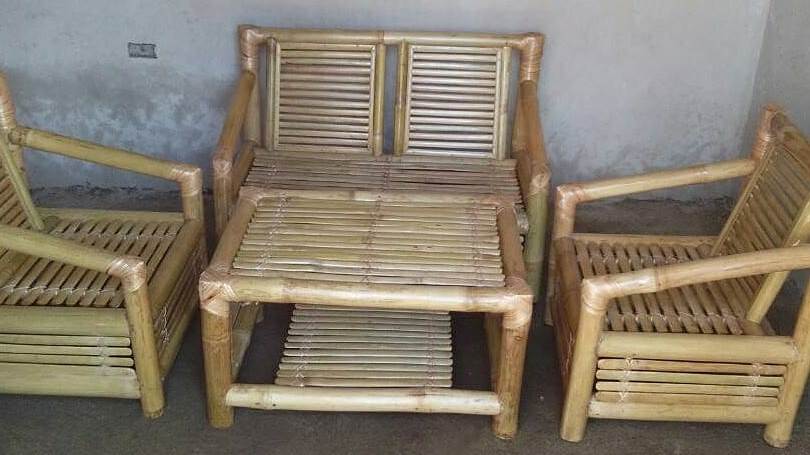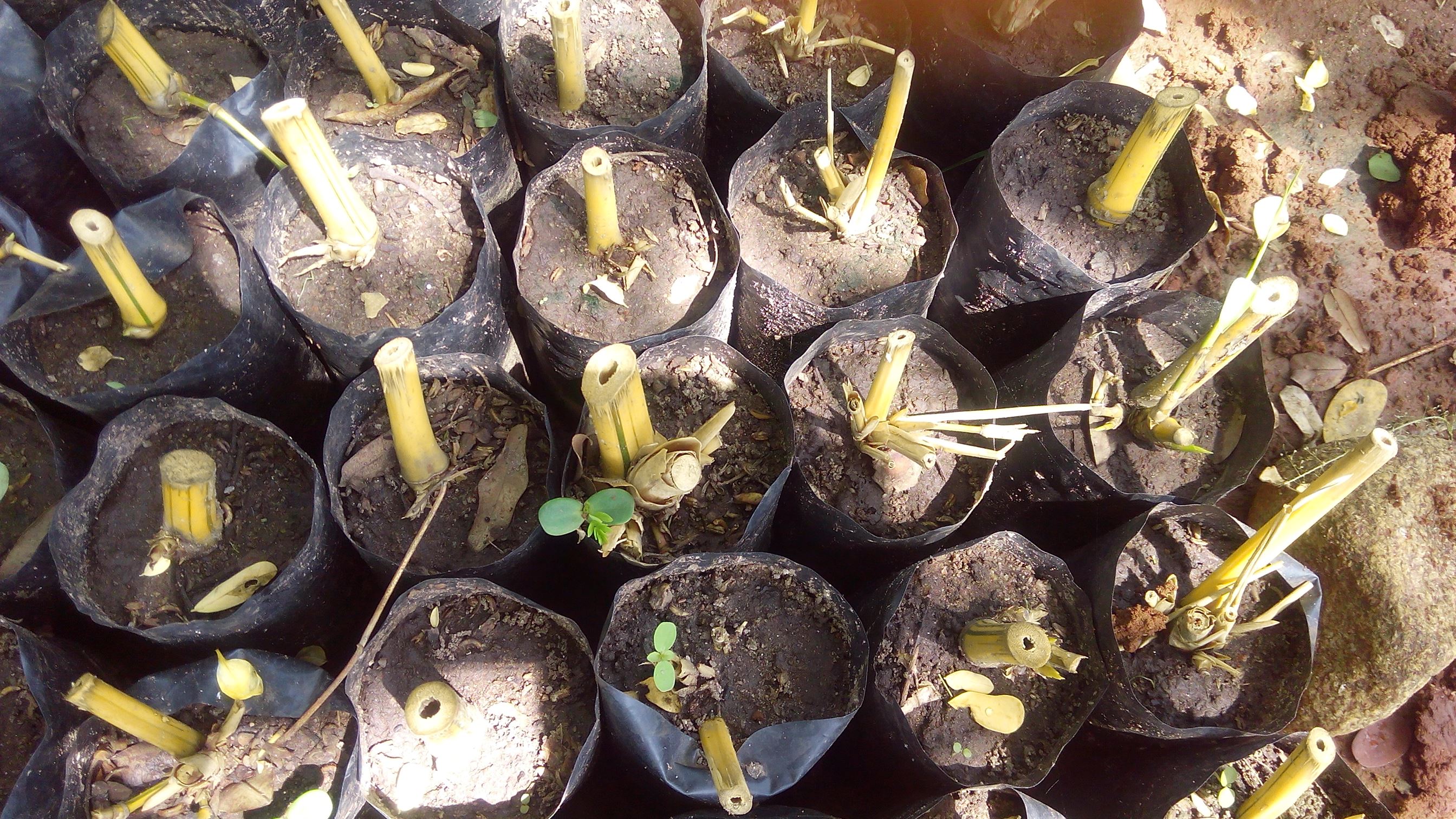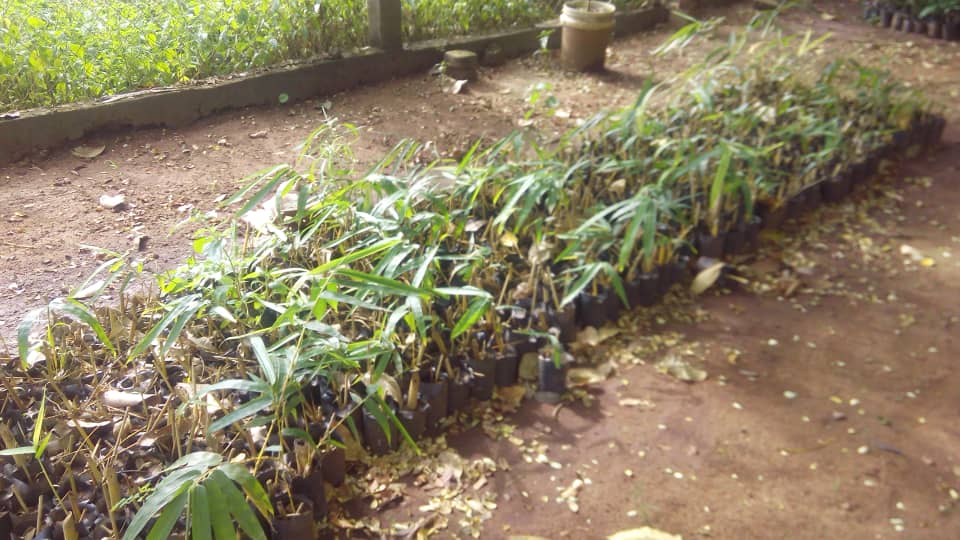Bamboo is a grass plant that belongs to the family Poaceae. It grows fast and has multiple uses. It is not treated as a tree, but rather a member of the true grass family as you can notice how much this is very different from other grasses we are used to seeing. According to the data obtained in the year 2000, Tanzania has approximately 127,824 ha of bamboo.

Bamboo Furniture
Unique characteristics
There is more than 1,000 species of bamboo which exists in the world and no other plant material on earth can rival the utility of bamboo. Studies shows that Bamboo is the fastest growing plant on the planet. It can grow 30 cm up to 1 metre within a 24-hour period.
Ecological range
Bamboo has different ecological ranges. There are species that grow in cold climates like in Iringa and Mbeya. For example the bamboo species scientifically known as Oxytenanthera abyssinica, the one used for ulanzi (local bamboo ‘wine’) production. Coming back to our environs here in Morogoro, you can see the abundant Yellow bamboo - Bambusa vulgaris. So, there are species which can be grown in a variety of climates. But as said earlier, bamboo is a unique plant with short rotation age it can be harvested at 3 to 5 years of age.
Uses of Bamboo
Bamboo has more than 1,500 uses including Furniture making,Wine production,Source of energy,House construction,Fencing,Weaving-trays, mats & basketry and Ornamental use.In some countries bamboo shoots are edible; but bamboo is also a raw material for many stuffs, which can’t be made from other plants.

Bamboo Utilization Project at Sokoine University of Agriculture
The aim of this project which is being implemented at Sokoine University of Agriculture is to help in training the whole country theoretically and practically on how to make baskets, how to make chairs, how to make litterbins, how to make beds, etc. by using Bamboo plant.
Our objective of establishing this project here at SUA is to get prepared to foster education to the whole country, so that the community surrounded by bamboo could see bamboo as one of the sources of income and they can do great things through bamboo products. They can get income for the community members but also for our nation. Tanzania can showcase how bamboo can be used as a source of income. So, this is for the betterment of our nation.” Said Mr. Paul Lyimo who is the project coordinator
This project is being implemented as pilot project to ensure that the experts in the College of Forestry wildlife and Tourism are well prepared and what they are going to train the community is viable, as they have done it practically; not only theoretically.
The Consultancy unit in the College of Forestry Wildlife and Tourism (FORCONSULT) has considered the importance of investing in the bamboo project as it will help to reduce illegal timber consumption.
We have managed to provide venture capital to support this project from our internal sources. As Coordination Unit - FORCONSULT, we have thought about using our small annual revenue to fund small projects in our College. One of those projects we can invest in is the 'bamboo uses' project. Said Dr Agnes Sirima, FORCUNSULT Coordinator
There are various products which have been manufactured so far and there are many more products being manufactured in the FORCUNSULT workshop located at Sokoine University of Agriculture.
We are using bamboo products, and our crafts workers are from our College, but also supervisors are from our College of Forestry, Wildlife and Tourism. We are investing a lot. We are promoting investment in bamboo as the plant has amazing growth rate, also it thrives in a wide range of climates. It grows fast and it reduces unsustainable use of forest. Timber is highly needed but instead of using timber only, we have brought bamboo as its substitute. Said Dr Agnes Sirima
Bamboo as the Source of Income
It is not too late to fully utilize bamboo, especially at this juncture when our beloved President Dr. John Pombe Magufuli is stressing on industrialization and Bamboo is one of the resources which will highly make industrialization in our country achievable.
Through bamboo we can establish small industries, and we can go further by using bamboo to make plywood, medium-density fibreboard (MDF). Through these products, we will be able to make bamboo doors and windows. So, this is the right time for us to promote the uses of bamboo so that we can make industrialization possible.” Added Mr. Paul Lyimo
The Sokoine University of Agriculture (SUA) through College of Forestry Wildlife and Tourism prepare our community to overcome income challenges through different means, making sure that our people’s income boom; also to ensure that they benefit from the available resources in their country. So now those who are already utilizing the existing bamboo resources, they must start promoting bamboo growing.

In conclusion Mr. Paul Lyimo noted that “We as SUA are also planting bamboo, we have started farm preparation and we have already about five thousand seedlings in our nursery which are ready for planting.

We are planting bamboo while promoting the uses,Emphasized Mr.Paul Lyimo.
Paulo John Lyimo is an assistant lecture and Forest Entomologist in the College of Forestry, Wildlife and Tourism. He has lead several projects including pest status of Leucaena psyllid, Heteropsylla cubana Crawford (Homoptera: Psyllidae) and Biological Control Agents in Eastern Tanzania, Insect Pests Outbreak in Korogwe Forest Plantation: A Great Risk for Forest Plantations in Tanzania and Modelling Fire Incidences and Impacts Assessment for Conservation of Biodiversity in Uluguru Nature Reserve, Morogoro Tanzania. Read His entire Biography in the following link




